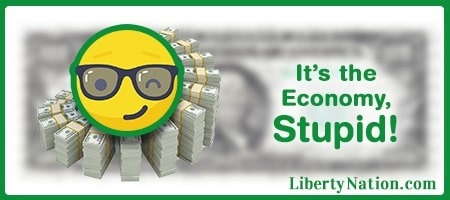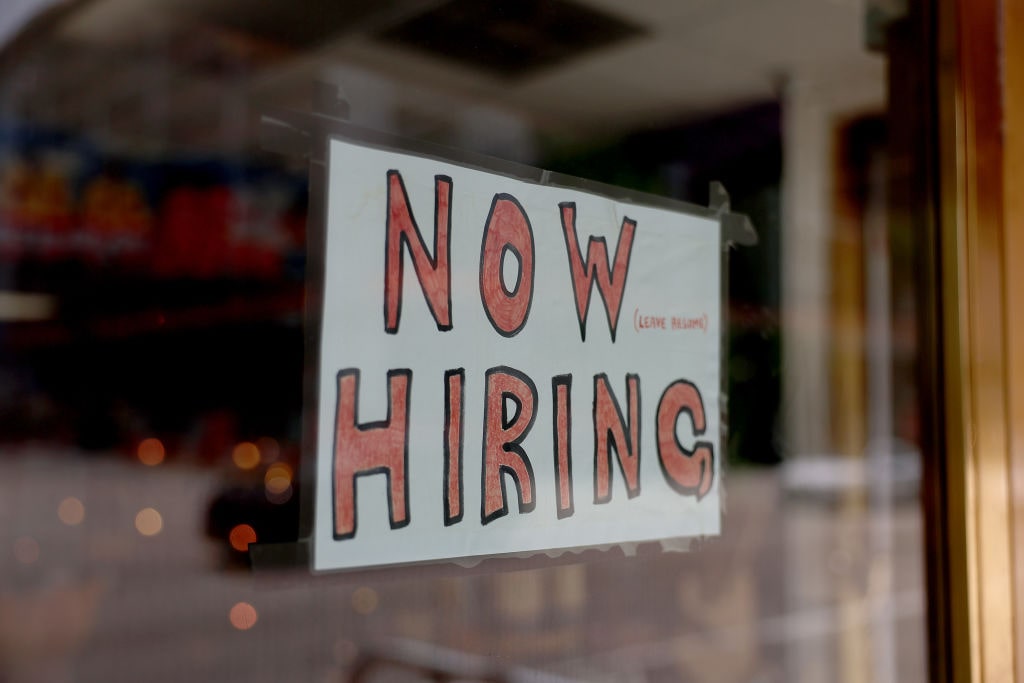Bizarro World has infiltrated the United States. All signs are pointing to slowing economic conditions, but the labor market continues to be the lifeblood of the present expansion cycle. And yet, despite the job boom looking like it will never die, the typical consumer is losing confidence in the US economy. It is fear and loathing in America as the public struggles to make ends meet amid rampant inflation and higher borrowing costs.
May Labor Market Data
The US economy added 339,000 positions in May, up from 294,000 in April and higher than the market estimate of 190,000, according to the Bureau of Labor Statistics (BLS). The unemployment rate, however, surged to 3.7%, up from 3.4% and worse than economists’ expectations of 3.5%. Average hourly earnings cooled, rising 0.3% month-over-month and easing to an annualized rate of 4.3%. The average hourly wage in America today is now more than $33. Average weekly hours slipped to 34.3, while the labor force participation rate was unchanged at 62.6%.
Most of the employment gains were led by professional and business services (+64,000), government (+56,000), health care (+52,000), leisure and hospitality (+48,000), and construction (+25,000). In total, employment levels have risen an average of 314,000 per month this year.
While the non-farm payrolls came in hotter than expected, it was not that surprising, as the monthly figure has beaten the market for 13 of the last 14 months. Moreover, after the ADP National Employment Report confirmed the private sector created 278,000 new jobs, the BLS data was sure to be impressive. Unfortunately for many Americans, real wage earnings (inflation-adjusted) remain negative.
Consumer Confidence Slides
The Conference Board released the May Consumer Confidence Index. While it was better than anticipated, the final print dropped considerably from April to May, clocking in at 102.3. This was also the fourth time in five months that the CCI has tumbled. The Present Situation Index, which measures consumers’ assessment of current business and labor market environments, fell sharply to 148.6. The Expectations Index, respondents’ short-term outlook, also fell slightly to 71.5.
 The deteriorating view among senior consumers makes the survey more notable than previous studies. “Consumer confidence declined in May as consumers’ view of current conditions became somewhat less upbeat while their expectations remained gloomy,” said Ataman Ozyildirim, the senior director of economics at The Conference Board. “While consumer confidence has fallen across all age and income categories over the past three months, May’s decline reflects a particularly notable worsening in the outlook among consumers over 55 years of age.”
The deteriorating view among senior consumers makes the survey more notable than previous studies. “Consumer confidence declined in May as consumers’ view of current conditions became somewhat less upbeat while their expectations remained gloomy,” said Ataman Ozyildirim, the senior director of economics at The Conference Board. “While consumer confidence has fallen across all age and income categories over the past three months, May’s decline reflects a particularly notable worsening in the outlook among consumers over 55 years of age.”
Waning confidence among older adults is not exactly surprising, as they have been severely impacted by rampant inflation on multiple fronts, forcing many to unretire or delay retirement to pay the bills and keep their heads above water. At the same time, the falling confidence for the broader public is also understandable, considering how affected everyone has been by widespread price pressures, lagging wages, and soaring interest rates.
Liberty Nation’s Kelli Ballard recently reported on the large number of Americans struggling this year:
“…between April 26 and May 8, 89.1 million Americans claimed it was ‘somewhat or very difficult’ to pay for regular household expenses. In 2021, 26.7% of adults agreed with the same findings, 34.4% found it to be true last year, and now 38.5% of adults are finding it more challenging to make ends meet.”

(Photo by Joe Raedle/Getty Images)
A plethora of surveys routinely report the same findings: Millions of households are living paycheck to paycheck, many are relying on credit to pay for their groceries, and a lot of consumers are dipping into their savings to help cover the growing cost of goods and services.
Make It Make Sense
Of course, the chief question is: If the US economy is beginning to slow down due to a broad array of factors, why is the national labor market still doing so well? Even the Federal Reserve has been stumped by the level of tightness, with policymakers and staff economists conceding that by this part of the tightening cycle, there would be greater job losses. But this has yet to be the case. Republicans contend that federal government aid programs enable too many workers to refrain from seeking employment, which is why they added work requirements into the debt ceiling agreement. In the end, until inflation is vanquished from society and the public can start affording basic aspects of life again, consumers may be perpetually disappointed in the economic landscape, with or without a red-hot job market.



